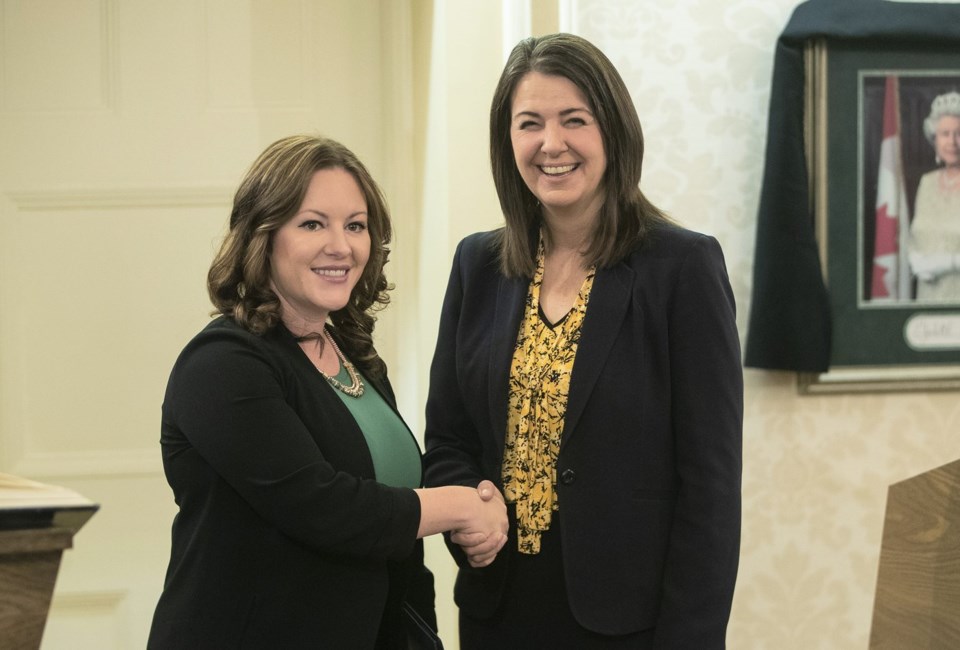WASHINGTON — Alberta's environment minister expressed little concern that European countries are taking steps toward tariffs on imported natural gas associated with high methane emissions as she promoted the province's role as an energy ally in Washington.
Rebecca Schulz said there have only been a few conversations about the emerging exporting issue as she visited the United States capital this week.
"That's not really been an issue that's been raised specifically," Schulz said in an interview with The Canadian Press on Thursday.
European Union countries approved a law earlier this year to impose methane emissions limits on oil and gas imports from 2030. Importers that don't meet the limit could face a financial penalty.
Some experts say the new European regulations are a sign of things to come for the global energy market and should send a message to producers to take methane reduction more seriously.
Methane is called a climate "super pollutant" and other jurisdictions, including the U.S., are also moving toward more stringent targets and imposing limits for methane intensity on gas imports. That could impact the Alberta market in the future.
The Biden administration has taken ambitious actions to limit greenhouse gas emissions, announcing a methane-reduction plan at a global climate conference. President Joe Biden has also pledged to eliminate carbon pollution from the electricity sector by 2035 and economywide by 2050.
The United States is Alberta's largest trading partner. In 2023, Alberta exported more than $156-billion in goods to the United States.
However, Schulz said she is not concerned by the shifting regulations in the energy market, touting Alberta's action on the environment. She said Alberta reduced emissions by 45 per cent, reaching that target three years ahead of schedule.
"We did that by working with industry and making sure that we set up policy, regulation and incentives," Schulz said.
The way Alberta measures methane emission reduction has faced scrutiny, with several studies concluding that industry projections of emissions are underestimated by anywhere from 50 to 150 per cent.
Schulz stands by the numbers.
"We are very confident in our methodology."
This report by The Canadian Press was first published June 20, 2024.
— With files from The Associated Press
Kelly Geraldine Malone, The Canadian Press



